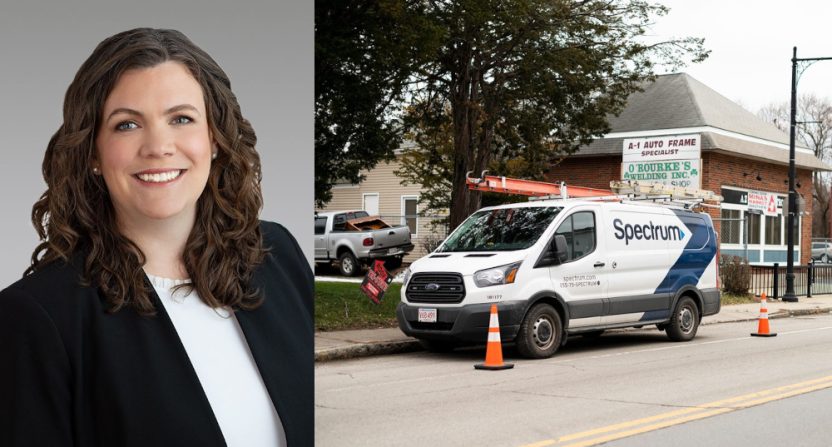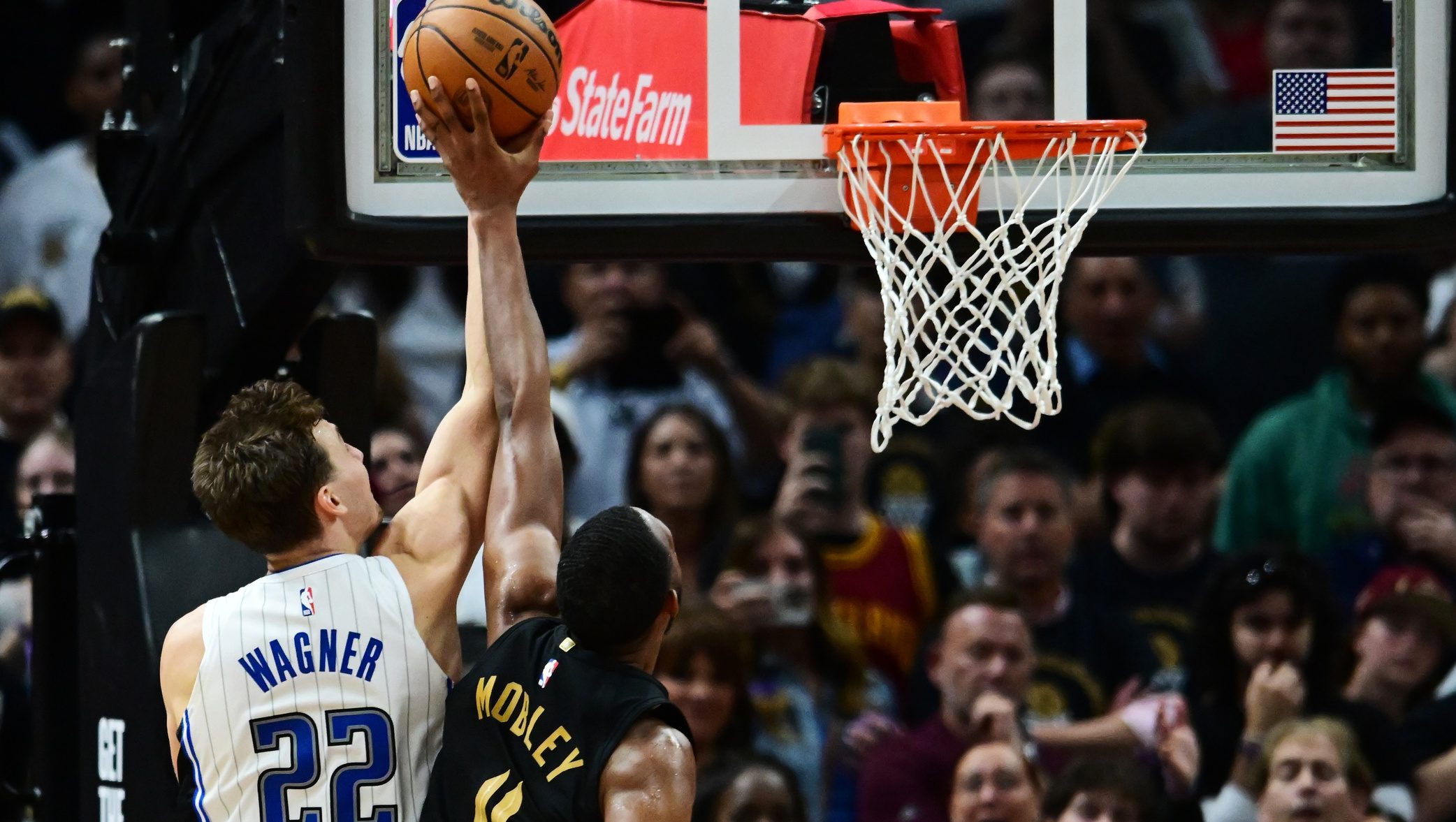From the outside, the deal Charter struck with Disney to end a 12-day blackout of Disney networks (including ESPN, ABC, and many more) on their Spectrum cable services didn’t seem like a full-on win for either side. Both sides got some of what they were initially hoping for, but not all of it, at least as per their initial comments. And the deal didn’t wind up looking as “transformative” as either side had hoped for.
But at the BofA Securities Media, Communications & Entertainment Conference this week, Charter CFO Jessica Fischer had some quite different comments. There, Fischer said they were “really happy” with the eventual deal. She said Charter hit “all of our objectives” with it, and didn’t lose as many subscribers as they’d expected to. Here’s more on that, from Deadline’s Dade Hayes:
Fischer said TV subscriber losses due to the outage, which came at the start of football season, were “much less than what we anticipated.” The hit to the company’s broadband subscriber base, meanwhile, “has been very, very small,” she added. “We’ve come out the other side of this doing well from a consumer perspective.”
…“We’re really happy with the deal,” Fischer said. “We met all of our objectives.” Among those, she said, was “taking valuable content that had been leaking out of the system and putting it back on our packages.”
Moderator and BofA analyst Jessica Reif Ehrlich asked Fischer why Charter had chosen Disney — which she characterized as the least prone among major media companies to “leak” programming from the pay-TV bundle to streaming — to battle over carriage terms. Fischer explained that the rift essentially centered on a single property. “They have the linchpin asset in ESPN,” she said. “You could not move to a new model without it.”
The carriage agreement provides “a glide path that gets us to the new direct-to-consumer environment,” Fischer said.
To start with, it’s certainly notable that Charter lost less subscribers than they anticipated (or, at least, that they’re saying that). That’s despite ESPN deploying a full-court press to convince Charter customers to switch providers, from promo campaigns for Hulu+Live TV and Fubo through intense press releases and even having Stephen A. Smith weigh in.
Of course, some of that may be about the difficulties many (including ESPN/SEC Network’s Peter Burns) experienced trying to cancel. And those numbers may well have shot up further if the dispute had extended further Monday and run into Monday Night Football. The viewership for that game was an ESPN record for MNF, so there was a ton of interest in it. And many may have canceled Charter and shifted to alternatives if the dispute was still going.
Beyond that, that’s an excellent question from Reif Ehrlich about why Charter picked Disney as the company to start a dispute with given their low level of “leaking” programming to streaming. And it illustrates one of the many things that was so strange about this dispute.
Early in that dispute, on a call with analysts and media call, Charter president and CEO Chris Winfrey described that shift of programming to streaming as “massive cannibalization,” said “they also want to require customers to pay twice to get content apps with the linear video they have already paid for.” And he made it clear that Charter’s position was that Disney should provide those apps for free to customers who pay for their linear channels through cable.
And yes, there’s some overlap of content with Disney. That’s particularly true with shows from linear channels like FX, DisneyXD, and Freeform that are also available on Disney+ and Hulu. But that “leak” is lower with Disney than with the likes of CBS/Paramount+ or NBC/Peacock, and there are a lot of shows only on Disney+ and Hulu. And there really isn’t a ton of linear ESPN/ESPN+ overlap at this point; some linear ESPN broadcasts are simulcast on ESPN+, but most are not and are only available through a multichannel video programming distributor like Charter that offers ESPN (whether via cable or via MVPD authentication in the ESPN app).
And, sure, Charter got some of what they wanted in the eventual resolution here. They gained basic Disney+ (with ads) for their basic tier Spectrum TV Select subscribers, they gained ESPN+ for higher-tier subscribers, and they were able to pull some Disney channels (Disney Junior, Disney XD, Freeform, FXM, FXX, and more) that do have high overlap with streaming services. They also gained the ability to offer more package flexibility (including likely some packages without ESPN, similar to the flexibility they recently gained to offer packages without regional sports networks), and they gained the ability to market Disney subscription services to their internet-only customers. But they didn’t gain Hulu access, or full Disney+ access.
And what Charter said they were particularly worried about was the coming over-the-top linear ESPN offering (set to launch in 2025 or 2026). On that call, Winfrey said “There’s no way you can enter into a multi-year agreement that forces that cost on all of your customers knowing that an a-la-carte model is coming, and that that would be probably better served for almost all the customers if they wanted to go there.” Charter has now ensured that the eventual ESPN OTT offering will be included for Spectrum TV Select subscribers and above, and that they’ll be able to sell it to their internet-only customers.
But, at this point, that first point doesn’t seem that big, as the ESPN OTT linear discussion to date has only been about offering the current linear (and MVPD-authentication-required streaming content, such as anything on “ESPN3”) content rather than exclusives (they already have ESPN+ for that). The second point may be bigger, with Charter potentially able to convince customers balking at the cost of Spectrum TV Select to buy a cheaper package without ESPN and other sports networks and then buy direct-to-consumer ESPN through them. And maybe that’s the “glide path” they envision.
But this deal looks far less revolutionary than what Charter was initially arguing for. And absolutely, Disney compromised too, especially on the inclusion of those DTC subscriptions and the removal of some of their less-prominent channels. And some movement from both sides is often how disputes get resolved. But for Charter to say they “met all of their objectives” either isn’t true or indicates that much of what they were initially talking about was simply bargaining for what they’d like to have versus the actual objectives they needed to have.
Maybe this deal is all Charter needs. And maybe it will set them up well on that glide path to a DTC future. And it certainly may give them an OTT app-bundling model they can then take to other programmers. But it’s remarkable to hear how positive these comments are after an ugly carriage fight and a resolution that, from the outside, didn’t look like a resounding win for either side.




